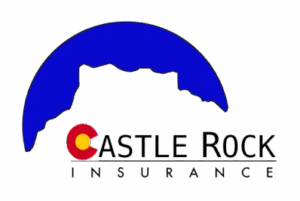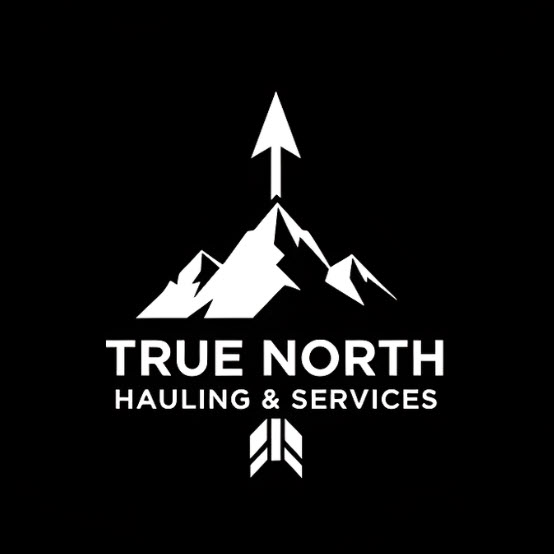Colorado’s thriving construction industry highlights the importance of insurance for contractors operating in the state. Contributing $26 billion to Colorado’s GDP and employing over 183,000 individuals, contractors are integral to the state’s economy. The industry is diverse, with 67% of establishments specializing in trades such as roofing, carpentry, and painting, while 30% of employees work for building equipment contractors like electricians and plumbers. With 92% of construction businesses employing fewer than 20 people, these smaller firms face unique challenges, including navigating risks like property damage, workplace accidents, and project delays. As the sector continues to grow—projected to expand by 12% by 2032—the need for tailored insurance solutions becomes even more critical.
This article explores the key insurance coverage options contractors need to protect their businesses and employees. From general liability and workers’ compensation to commercial auto and tools and equipment coverage, contractors must understand how to mitigate risks in their operations. Whether you run a small specialty trade business or a larger contracting firm, we’ll delve into the types of insurance policies available, why they are essential, and how they address specific risks in Colorado’s construction landscape. Stay tuned for insights into safeguarding your livelihood and navigating the complexities of contractor insurance.
Overview About Colorado Contractor Insurance Needs
- Why Colorado Contractors Need Insurance Coverage
- Risk Factors That Impact Contractor Insurance Rates
- What Does Colorado Law Require for Contractors?
- How Much Does Insurance Cost for Colorado Contractors?
- Commercial Insurance Carriers Offered by Castle Rock Insurance
- Get Your Contracting Insurance Covered Today!
Why Colorado Contractors Need Insurance Coverage
Commercial insurance is essential for Colorado contractors, offering financial protection and operational support in the dynamic construction industry. Colorado’s unique geography and climate present distinct challenges, from navigating mountainous terrain to dealing with unpredictable weather, such as sudden snowstorms or hail. These factors make it critical for contractors to have insurance that addresses risks specific to the region. Additionally, Colorado’s booming construction sector, fueled by growth in cities like Denver, Boulder, and Colorado Springs, often demands contractors meet stringent insurance requirements to secure permits and contracts. Without appropriate coverage, contractors face financial instability, legal hurdles, and the risk of losing valuable opportunities.
Comprehensive business protection requires multiple types of commercial insurance, each tailored to specific needs. General liability insurance is fundamental, covering third-party claims for property damage or bodily injuries that may occur on-site or due to construction activities—risks that are heightened in areas with active development and dense populations, such as Denver’s urban centers. Workers’ compensation insurance is legally required for businesses with employees in Colorado and covers medical expenses, lost wages, and rehabilitation for workplace injuries, providing peace of mind for both contractors and their workforce. In a state known for its diverse construction projects, ranging from custom homes in the mountains to large-scale urban developments, commercial auto insurance is equally vital. It protects vehicles used to transport materials, tools, or employees, ensuring that accidents or damages don’t derail a project.
Specialized policies further enhance protection and address Colorado-specific risks. Tools and equipment insurance safeguards vital assets from loss or damage, a critical consideration in high-altitude or remote job sites where theft or mishandling is a concern. Builders’ risk insurance provides coverage for ongoing construction projects, protecting against unexpected events such as theft, fire, or the state’s infamous hailstorms. For contractors involved in design-build services, professional liability insurance offers protection against claims of negligence, errors, or omissions in project execution. Together, these policies form a comprehensive safety net, allowing Colorado contractors to focus on delivering quality work while navigating the unique demands of the state’s construction industry.
Risk Factors That Impact Contractor Insurance Rates
Risk factors significantly influence insurance rates for Colorado contractors, with various elements affecting premium calculations. Understanding these factors is crucial for contractors seeking to manage costs effectively.
Nature of Work and Occupational Hazards
The specific type of construction work performed greatly impacts risk assessment. For instance, trades involving high-risk activities such as roofing, electrical installations, or heavy machinery operation are more prone to accidents. In Colorado, the construction industry has seen a notable number of workplace injuries, with natural resources, construction, and maintenance occupations accounting for a significant portion of fatal occupational injuries.
Equipment Theft and Vandalism
Construction sites are frequent targets for theft and vandalism, leading to substantial financial losses. In Colorado, there has been a significant rise in equipment theft, posing challenges to project managers and impacting project deadlines and financial margins.
Work Zone Accidents
Accidents in construction zones are a pressing concern. In Colorado, there has been an increase in fatal crashes in construction work zones, highlighting the dangers present in these areas.
Transportation Risk
Contractors often transport materials and equipment between sites, increasing the likelihood of vehicular accidents. In Colorado, there were over 1,100 construction zone crashes in 2022, with tailgating being the leading cause.
Project Complexity and Scale
Larger and more complex projects typically involve greater risks, including structural challenges and coordination issues, which can lead to higher insurance premiums.
Safety Protocols and Training
Contractors with comprehensive safety programs and regular employee training may benefit from lower insurance rates, as insurers recognize proactive risk management efforts.
Claims History
A contractor’s history of insurance claims is a critical factor. Frequent or severe claims can result in higher premiums, as they indicate a higher risk profile.
By understanding and addressing these risk factors, Colorado contractors can implement strategies to mitigate potential hazards, thereby influencing insurance rates favorably and ensuring the sustainability of their operations.
What Does Colorado Law Require for Contractors?
In Colorado, contractors are subject to specific licensing and insurance requirements designed to ensure professionalism, safety, and accountability within the construction industry. Meeting these legal requirements is essential not only for compliance but also for securing contracts and avoiding penalties.
Licensing Requirements
Licensing requirements for contractors in Colorado vary by municipality and county, as there is no single statewide licensing system. General contractors, electricians, and plumbers are typically regulated at the state or local level, with varying requirements depending on the scope of work.
- General Contractors: Most cities and counties require general contractors to obtain a license before performing work. For example, in Denver, contractors must meet minimum qualifications, including proof of experience, passing an exam, and providing insurance documentation.
- Electrical and Plumbing Contractors: These trades are regulated statewide by the Colorado Department of Regulatory Agencies (DORA). Contractors must pass state-level exams, maintain active licenses, and complete continuing education requirements to stay current with building codes and safety regulations.
Failing to obtain the appropriate licenses can result in fines, legal action, or the inability to bid on projects. Licensed contractors are also more likely to gain clients’ trust, as licensing demonstrates compliance with local laws and industry standards.
Insurance Requirements
Insurance is a critical component of contractor compliance in Colorado. The state mandates several types of insurance to protect workers, clients, and the public:
- Workers’ Compensation Insurance: All businesses with one or more employees, whether full-time or part-time, are required to carry workers’ compensation insurance under Colorado law. This insurance covers medical expenses, lost wages, and rehabilitation costs for employees injured on the job. Even independent contractors may need workers’ compensation in some cases, particularly if their work involves high-risk activities.
- General Liability Insurance: While not always explicitly required by state law, general liability insurance is a standard requirement for obtaining a contractor license in many Colorado municipalities. This policy protects contractors from financial losses due to property damage, bodily injury, or legal claims arising from their work.
- Commercial Auto Insurance: Contractors who use vehicles for business purposes, such as transporting tools and materials, must carry commercial auto insurance. This policy covers damages resulting from accidents, including vehicle repairs, medical expenses, and liability for injuries caused to others.
- Bonding Requirements: Many municipalities require contractors to be bonded, which provides clients with financial protection if a contractor fails to complete a project or violates licensing requirements. Bonds are often a prerequisite for obtaining a license or bidding on public works projects.
- Additional Insurance Types: Depending on the scope of work, contractors may also need specialized insurance such as:
- Tools and Equipment Insurance: Covers stolen or damaged tools.
- Builders’ Risk Insurance: Protects structures under construction against events like fire or theft.
- Professional Liability Insurance: Covers claims related to negligence or errors in design work for contractors offering design-build services.
Why Compliance Matters
Meeting licensing and insurance requirements in Colorado is essential for legal compliance and business success. Contractors who fail to comply risk fines, lawsuits, project delays, or even the suspension of their business operations. Moreover, many clients, particularly in commercial and public sectors, require proof of licensing and insurance before awarding contracts. Compliance also demonstrates professionalism and commitment to safety, which can give contractors a competitive edge in a crowded market.
By staying informed about local licensing and insurance mandates, contractors can protect their businesses, employees, and clients while ensuring long-term success in Colorado’s growing construction industry.
How Much Does Insurance Cost for Colorado Contractors?
The cost of insurance for contractors in Colorado varies depending on the trade, location, business size, and risk exposure. Below are ten detailed hypothetical examples of insurance costs for various contractor specialties across Colorado. Each includes a summary of the unique risks and considerations for the occupation.
1. Roofing Contractor in Aurora
Roofing is one of the highest-risk trades due to potential falls and equipment-related injuries. Roofing contractors need strong liability and workers’ compensation coverage to mitigate these risks.
- General Liability: $2,000 annually (to cover property damage and injury claims)
- Workers’ Compensation: $3,800 annually (reflecting the elevated risk of workplace injuries)
- Commercial Auto: $2,400 annually (multiple trucks used for transporting ladders and materials)
2. Bath Remodeling Contractor in Fort Collins
Bath remodeling involves specialized tools and exposure to water damage risks. These contractors need insurance to protect against claims arising from water leaks or client disputes.
- General Liability: $1,500 annually (for protection against client claims)
- Workers’ Compensation: $2,200 annually (covering a small team of employees)
- Tools and Equipment Insurance: $450 annually (for saws, drills, and other portable tools)
3. Electrical Contractor in Colorado Springs
Electrical contractors face risks like fires, shocks, and electrocution. Insurance is essential for safeguarding against property damage and employee injuries.
- General Liability: $1,800 annually (to address property damage and injury claims)
- Workers’ Compensation: $3,200 annually (high-risk trade with specific safety requirements)
- Commercial Auto: $2,000 annually (a van equipped to transport electrical materials)
4. Masonry Contractor in Denver
Masonry work requires handling heavy materials and tools, increasing the likelihood of physical injuries. Insurance protects against job site accidents and property damage claims.
- General Liability: $2,200 annually (protecting against structural damage claims)
- Workers’ Compensation: $3,600 annually (reflecting the labor-intensive nature of masonry)
- Builders’ Risk Insurance: $1,500 annually (to cover structures under construction)
5. HVAC Contractor in Boulder
HVAC contractors handle hazardous materials and work with complex systems. Comprehensive insurance ensures protection from liability and equipment-related risks.
- General Liability: $1,800 annually (to cover accidental damages or injuries on-site)
- Workers’ Compensation: $3,000 annually (reflecting the risks of confined space work)
- Commercial Auto: $2,100 annually (used to transport HVAC units and tools)
6. Landscaping Contractor in Highlands Ranch
Landscaping contractors face risks like equipment theft and injuries from operating machinery. Proper insurance covers these risks and safeguards their operations.
- General Liability: $1,200 annually (to protect against property damage claims)
- Workers’ Compensation: $2,500 annually (for employees operating heavy equipment)
- Tools and Equipment Insurance: $400 annually (covering mowers, trimmers, and more)
7. General Contractor in Castle Rock
General contractors oversee diverse teams and manage large projects. They require a wide range of insurance policies to address liabilities and project-specific risks.
- General Liability: $2,400 annually (broad coverage for injury and damage claims)
- Workers’ Compensation: $3,500 annually (for managing subcontractors and employees)
- Professional Liability: $1,800 annually (for claims related to design-build services)
8. Painting Contractor in Pueblo
Painting contractors face lower physical risks but must address property damage claims. Insurance protects them from accidental spills or overspray damages.
- General Liability: $1,000 annually (to cover paint spills or property damage claims)
- Workers’ Compensation: $1,800 annually (for a small team of painters)
- Tools and Equipment Insurance: $300 annually (for brushes, ladders, and sprayers)
9. Framing Contractor in Greeley
Framing work involves precision and heavy lifting, increasing the risk of injuries. Insurance is essential to manage risks tied to job site accidents and material handling.
- General Liability: $1,700 annually (protecting against property damage claims)
- Workers’ Compensation: $3,400 annually (covering employees in a high-risk environment)
- Builders’ Risk Insurance: $1,200 annually (for projects under construction)
10. Plumbing Contractor in Durango
Plumbers frequently work in confined spaces and handle water-intensive tasks. Insurance covers property damage from leaks and protects against employee injuries.
- General Liability: $1,600 annually (to address damage from burst pipes or leaks)
- Workers’ Compensation: $2,800 annually (reflecting physical risks of plumbing work)
- Commercial Auto: $2,000 annually (used for transporting tools and pipe materials)
Commercial Insurance Carriers Castle Rock Insurance offers
Castle Rock Insurance partners with an extensive range of commercial carriers to provide contractors in Colorado with comprehensive and specialized coverage options. Whether you need general liability, workers’ compensation, or industry-specific insurance, trusted carriers like Chubb, Liberty Mutual, and Progressive Commercial deliver robust solutions. For contractors in niche industries, companies like Tokio Marine Artisan’s Edge and Burns & Wilcox offer tailored policies to meet unique operational demands. Castle Rock Insurance’s partnerships ensure contractors of all sizes have access to reliable, customizable coverage options.
In addition to major carriers, Castle Rock Insurance works with specialized providers like Neptune Flood, Berkshire GUARD, and Bond Exchange to cover diverse needs such as flood insurance, bonds, and property protection. Carriers like Nationwide Brokerage and The Hartford bring decades of expertise in insuring contractors, providing policies that safeguard against the challenges of operating in Colorado’s unique market. Whether you’re a small-scale artisan contractor or part of a large construction firm, these partnerships help protect your business assets and operations.
Castle Rock Insurance also collaborates with carriers that address specific risk areas and emerging needs, including Employers for workers’ compensation, RSI for risk management, and Travelers for comprehensive business policies. With access to over 50 commercial carriers, including Auto-Owners Insurance and Westfield Insurance, Castle Rock Insurance ensures contractors receive personalized coverage that fits their needs and budget. By leveraging these partnerships, they simplify the insurance process while delivering peace of mind to contractors across Colorado.
Get Your Contracting Business Insured Today!
Castle Rock Insurance is the ideal choice for contractors in Colorado, offering unmatched expertise, personalized service, and access to over 50 trusted commercial carriers. By understanding the unique challenges contractors face in Colorado’s diverse industries, Castle Rock Insurance provides tailored solutions that protect your business while keeping costs manageable. Whether you need coverage for liability, workers’ compensation, property, or specialized risks, their team ensures your policy fits your specific needs. With a commitment to exceptional customer care and local expertise, Castle Rock Insurance makes it easy for contractors to secure reliable protection and focus on growing their business with confidence.





